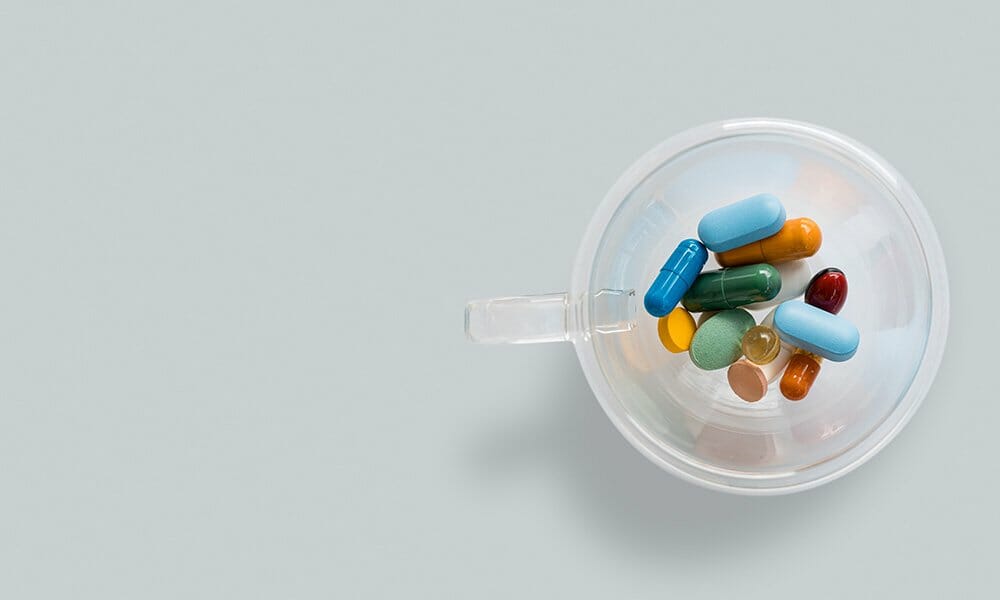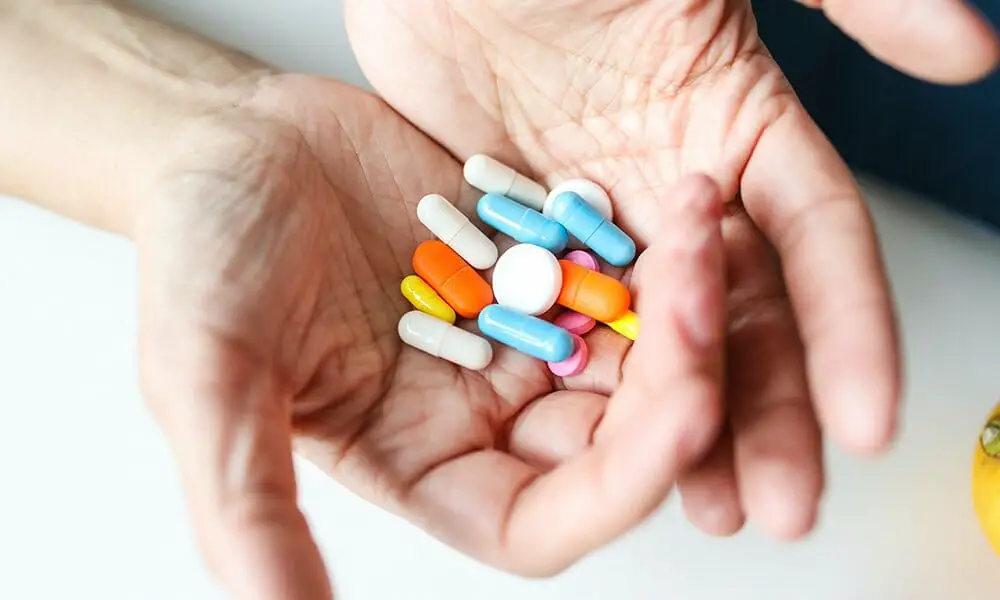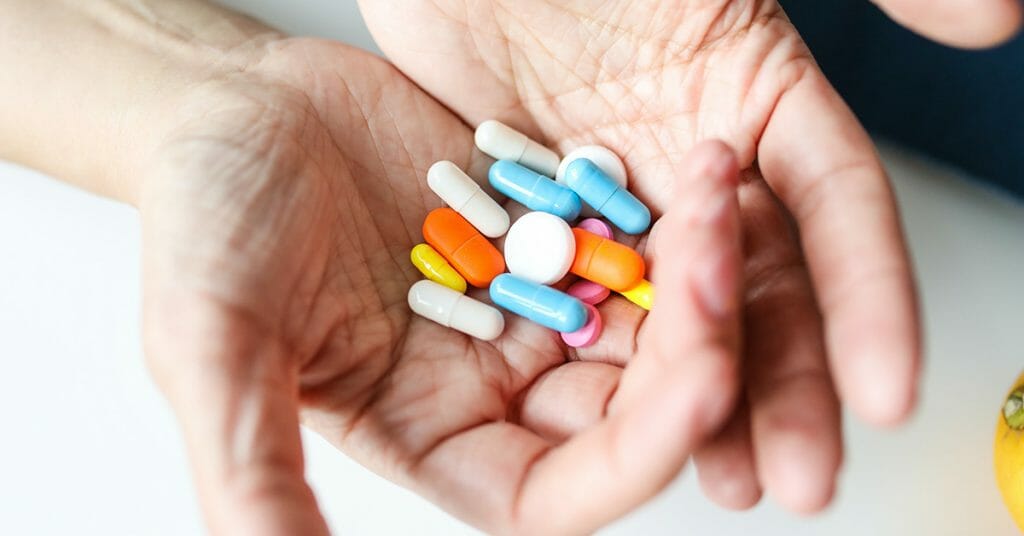Many people wonder what are probiotics. They see them recommended everywhere for physical and mental health, but they’re not quite sure what they are. In this article, we’ll clear things up by explaining the benefits of probiotics and what they actually are.
What Are Probiotics

Probiotics are live microorganisms, bacteria, and yeast, that are good for you. I say good for you because you might associate bacteria with disease and infections, but the body is full of bacteria, some of which is extremely helpful and even necessary.
So probiotics are just that, the good and helpful bacteria. You can find them naturally in foods like yogurt, soft cheeses, kefir, and more. Or you can get them through a supplement.
Why Take Probiotics

You might wonder why should you take probiotics if they naturally occur in your body. Well, probiotics can be helpful in many ways, and we’ll get more into the specific benefits later in this article, but generally, some reasons to take probiotics are:
- Recovering from antibiotics (which kill negative as well as positive bacteria in your body).
- Keeping bacteria balanced, so negative bacteria doesn’t get out of control.
- Helping your body digest food better.
Think of it this way, when you are sick, if it’s an upset stomach or harsh flu, harmful bacteria entered your body and is causing an imbalance. That’s when the body sends good bacteria to fight it.
Sometimes your body can take care of it, and in a couple of days, you’re back to normal, but sometimes it gets so out of control that you need to take antibiotics that kill bacteria, negative and positive.
Taking probiotics regularly, or when you’re sick, can help your body fight off the bad bacteria better.
Prebiotic vs Probiotic

Some people wonder what are the benefits of prebiotic vs probiotic. While the name is similar, prebiotics are not live bacteria; they are a form of dietary fibers that act as fertilizer for probiotics — essentially promoting the body to create more probiotics rather than directly providing them.
Probiotics Benefits
So now that you have a grasp on what probiotics are, let’s get into the different benefits of probiotics.
Mental Health

There have been numerous studies showing the correlation between gut health and mental health. For that reason, probiotics, which help keep the gut healthy, aid mental health conditions such as:
- Mental Fog
- Anxiety
- Depression
- Autism
- OCD
Balances Digestive System Bacteria

As we explained before, probiotics are positive live bacteria that help the body balance and fight constant threats (negative bacteria) better. That is especially true when it comes to gut bacteria.
Your digestive system has live bacteria that’s always fighting the different threats presented to it; after all, everything you eat has bacteria in it. And many times, that bacteria is harmful.
An imbalance in the gut could be caused by a poor diet, antibiotics, illness, genetics, and more. That, in turn, could lead to digestive issues, allergies, obesity, diseases, and more.
Probiotics can help bring back the natural balance of gut bacteria and prevent those problems. If you have problems with your bile, be sure to check out our article on beet flow and increasing bile flow.
Prevents & Treats Diarrhea

Diarrhea is a common side-effect of an imbalance in gut bacteria; it frequently happens when taking antibiotics and sometimes occurs from random bacteria in food. As expected, probiotics can be an excellent solution for that.
One study revealed that antibiotic-associated diarrhea could be reduced by 42% by merely taking probiotics.
Many studies have also shown that probiotics can reduce the length of infectious-diarrhea by approximately 25 hours. It also lowers the risk of diarrhea by 26% when taken regularly.
If you’re traveling to foreign places, taking probiotics can be very helpful, as travelers’ diarrhea is a real problem.
Heart Health

Probiotics can help keep your heart healthy in two different ways, they help lower blood pressure and they help lower LDL cholesterol, which is the “bad” cholesterol.
The bacteria in probiotics helps break down bile, a naturally occurring fluid made mostly out of cholesterol, that releases into the gut to aid digestion. By breaking it down better, probiotics prevent it from being absorbed in the gut and enter the blood as cholesterol.
Studies have also shown probiotics to lower blood pressure after 8-10 weeks of usage.
Reduces Infant Eczema

Probiotics are not only helpful to adults but babies too.
One study showed the potential of probiotics to control eczema; infants fed probiotic-supplemented milk have shown significant improvement compared to infants fed milk without probiotics.
Another study showed that women who took probiotics during pregnancy had an 83% lower chance of their children developing eczema.
Immune System Boost

One of the benefits of probiotics is it gives your immune system a hand. It does that by constraining the growth of harmful bacteria and promoting the production of natural antibodies.
One study including 571 healthy children found probiotics to reduce the frequency and severity of respiratory infections by roughly 17%.
Weight Loss

Probiotics can aid weight loss in several different ways. The first is they help prevent the absorption of fats and oils found in animal and plant foods.
That means that instead of accumulating in your body the they get digested and excreted through feces. Also, because probiotics affect certain hormones, they help make you feel fuller for longer.
Probiotics may also cause weight loss directly, as shown in this study.
Probiotics Side Effects
You might think, with all that good, there must be some bad. Well, you would be right, partially. Probiotics are essentially safe as they are natural to the body, but as with anything, some side effects can occur. Let’s go over them.
Digestive problems can occur for first-time users because of the sudden change in gut bacteria. That can lead to gas, bloating, and diarrhea. But, these side effects usually disappear within a few days.
Skin problems rarely occur but can cause rashes or itchiness; if that happens, stop taking the probiotic and see a doctor. Most likely, you are allergic to one of the ingredients of the supplement.
An increased risk of infection could occur to people with severe illnesses or compromised immune systems. If that is your case, please advise a doctor before taking probiotics.
Probiotic Foods
Now that we’ve covered the benefits of probiotics, it seems evident that you should consume them. Well, you don’t have to purchase a supplement just yet, you can get probiotics naturally from certain foods, such as:
- Yogurt
- Soft Cheeses
- Kefir
- Sourdough Bread
- Sour Pickles
- Miso Soup
- Sauerkraut
Conclusion
In conclusion, probiotics are live microorganisms, bacteria, and yeast, that naturally occur in your body. Those microorganisms are responsible for the proper function of many different parts of your body, mostly the gut.
Still, even the gut affects many different parts of your body, going as far as anxiety and depression.
The benefits of probiotics are a healthier digestive system, better mental health, a healthier heart, stronger immune system, and weight loss. Probiotic foods are plentiful, but you can also get them easily through supplements.
Overall, probiotics are great, and everyone should consume them, even babies and kids. For more healthy ways to stay healthy naturally, check out this article about the best mushroom supplements.
